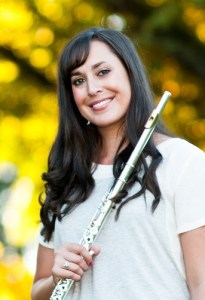 Second Inversion and the Live Music Project create a monthly calendar featuring contemporary classical, cross-genre, and experimental performances in Seattle, the Eastside, Tacoma, and places in between!
Second Inversion and the Live Music Project create a monthly calendar featuring contemporary classical, cross-genre, and experimental performances in Seattle, the Eastside, Tacoma, and places in between!
Keep an eye out for our this flyer in concert programs and coffee shops around town. Feel free to download, print, and distribute it yourself! If you’d like to be included on this list drop us a line at least 6 weeks prior to the event.
Racer Sessions
A weekly showcase of original music with a jam session based on the concepts in the opening presentation.
Every Sunday, 8-10pm, Cafe Racer | FREE
Wayward Music Series
Concerts of contemporary composition, free improvisation, electronic/electroacoustic music, & more.
Various days, 7:30/8pm, Good Shepherd Chapel | $5-15
Kaley Lane Eaton: ANIMAL
A psychedelic, post-minimalist kaleidoscope of Eaton’s recent work, dancing the tension lines between the body, the mind, the instrument, & the computer.
Fri, 4/1, 8pm, Good Shepherd Chapel | $5-$15
Second Inversion Presents: SRO Quintet
The Seattle Rock Orchestra Quintet transforms popular song into art song with Radiohead, Beck, Bjork and original emotional chamber works.
Sat, 4/9, 8pm, Resonance at SOMA Towers, Bellevue | $25
Seattle Modern Orchestra: Musica Electronica
SMO presents three electronic works from three different generations including works by Berio, Saariaho, & a world premiere by Ewa Trębacz.
Sat, 4/9, 8pm, Good Shepherd Chapel | $10-$20
Cornish Presents: A Tribute to Janice Giteck
Cornish celebrates the dedicated teaching career of Janice Giteck with a concert of her music performed by long-time friends & former students.
Tues, 4/12, 8pm, PONCHO Hall | $5-$10
Seattle Symphony: Silvestrov U.S. Premiere
Guest conductor Mikhail Tatarnikov leads SSO in the U.S. premiere of Silvestrov’s Symphony No.8.
Thurs, 4/14, 7:30pm, Benaroya Hall | $21-$121
Sat, 4/16, 8pm, Benaroya Hall | $21-$121
2Cellos
This Croatian cello duo breaks down boundaries between different genres of music, equally comfortable playing Bach or rocking out to AC/DC.
Sun, 4/17, 7pm, McCaw Hall | $36.50-$56.50 (+ fees)
Cornish Presents: Friction Quartet
This San Francisco quartet has established a reputation for edgy programming and exhilarating performance of contemporary string quartets.
Thurs, 4/21, 8pm, PONCHO Hall | $10-$20
(re)MOVE: Back Toward Again the (re)TURN Facing
This evening of dance & live music (by Horvitz, Owcharuk & Omdal) ventures into personal and feminist injustices of earth and the female body.
Fri, 4/22 & Sat, 4/23, 7:30pm, Velocity Dance Center | $15-$50
Sun, 4/24, 6:30pm, Velocity Dance Center | $15-$50
Erin Jorgensen
Soundscapes from a five-octave marimba, with intimate vocals, backing electronics, and destream-of-consciousness thoughts ideal for closed eyes.
Sat, 4/23, 8pm, Good Shepherd Chapel | $5-$15
Philharmonia Northwest: The New World
This performance features a world premiere by David Schneider, illuminating new forms of communication between computer and orchestra.
Sun, 4/24, 2:30pm, St. Stephen’s Episcopal Church | $15-$20
Music of Today: The Music of Harry Partch
This performance of music by Harry Partch features the composer’s collection of handmade instruments, currently housed at the School of Music.
Tues, 4/26, 7:30pm, Meany Theater | $10-$15
UW Guest Artist Concert: Decoda
This Affiliate Ensemble of Carnegie Hall presents fresh insights into works both new and old as a culmination of a week-long residency at UW.
Thurs, 4/28, 7:30pm, Meany Theater | $10-$20
UW World Series: Daedalus Quartet
Daedalus Quartet makes their Seattle premiere with Beethoven quartets and a commissioned work by UW School of Music composer Huck Hodge.
Fri, 4/29, 7:30pm, Meany Theater | $34-$38
uwworldseries.org
Northwest Symphony Orchestra: Johnston, Bassingthwaighte, Dvořák
Join the Northwest Symphony Orchestra for a world premiere flute concerto by Sarah Bassingthwaighte.
Sat, 4/30, 8pm, Highline Performing Arts Center, Burien | $12-$15





 Learn about this and many more issues of feminism in classical music at Dr.
Learn about this and many more issues of feminism in classical music at Dr.


 Jessie Polin: This particular concert is unique in that it showcases some of the best chamber music repertoire for winds and brass. Especially with the Stravinsky and Poulenc, we’re exploring the neoclassical style in the context of a small chamber concert.
Jessie Polin: This particular concert is unique in that it showcases some of the best chamber music repertoire for winds and brass. Especially with the Stravinsky and Poulenc, we’re exploring the neoclassical style in the context of a small chamber concert.

